
Future
Focus
2022/23
Belfast Partner Groups: Glenparent Youth Group | North Belfast Area Project | Colin Gaels
Craigavon & Portadown Groups: Gilford Youth | Scotch Street Youth & Community Centre
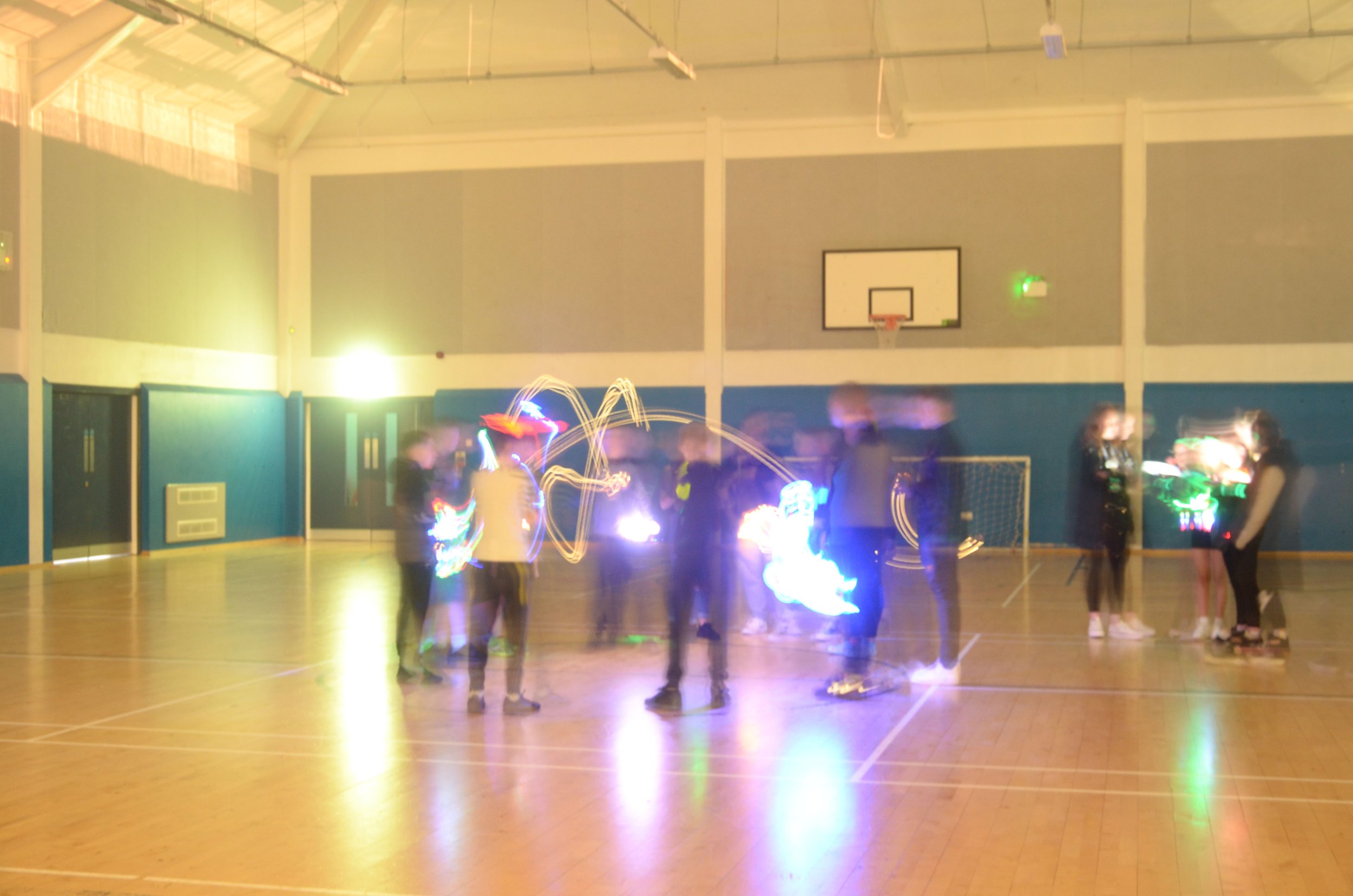









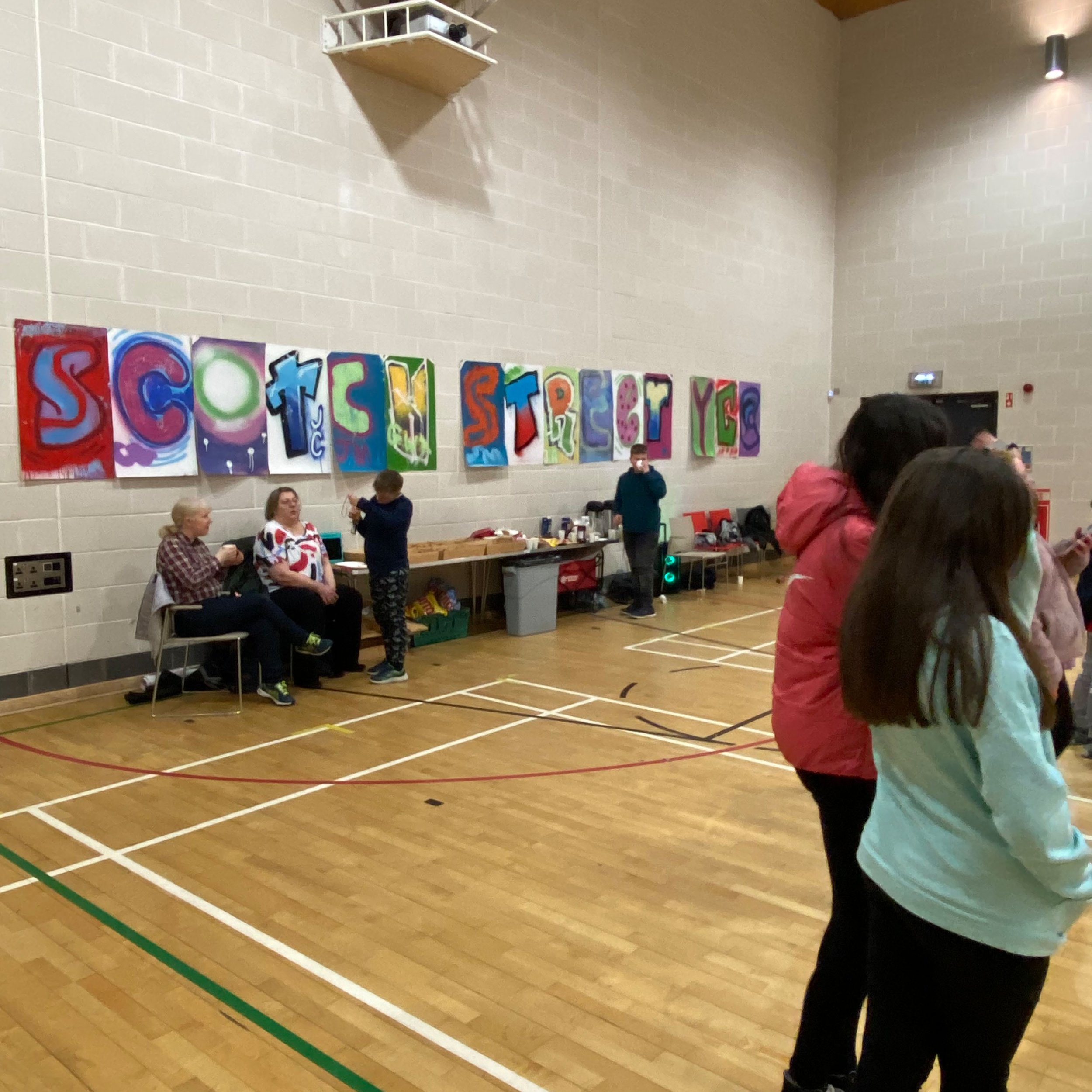






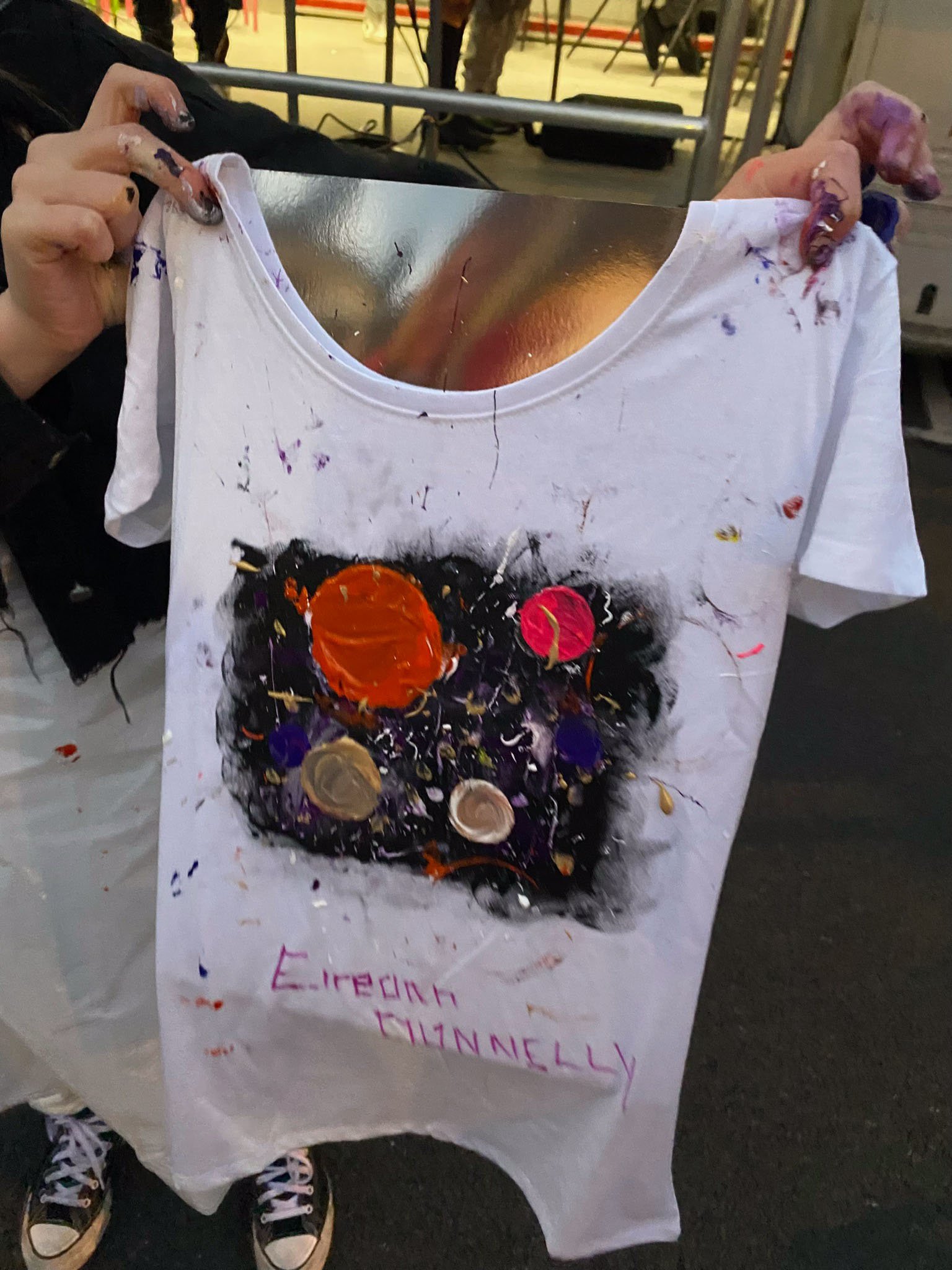
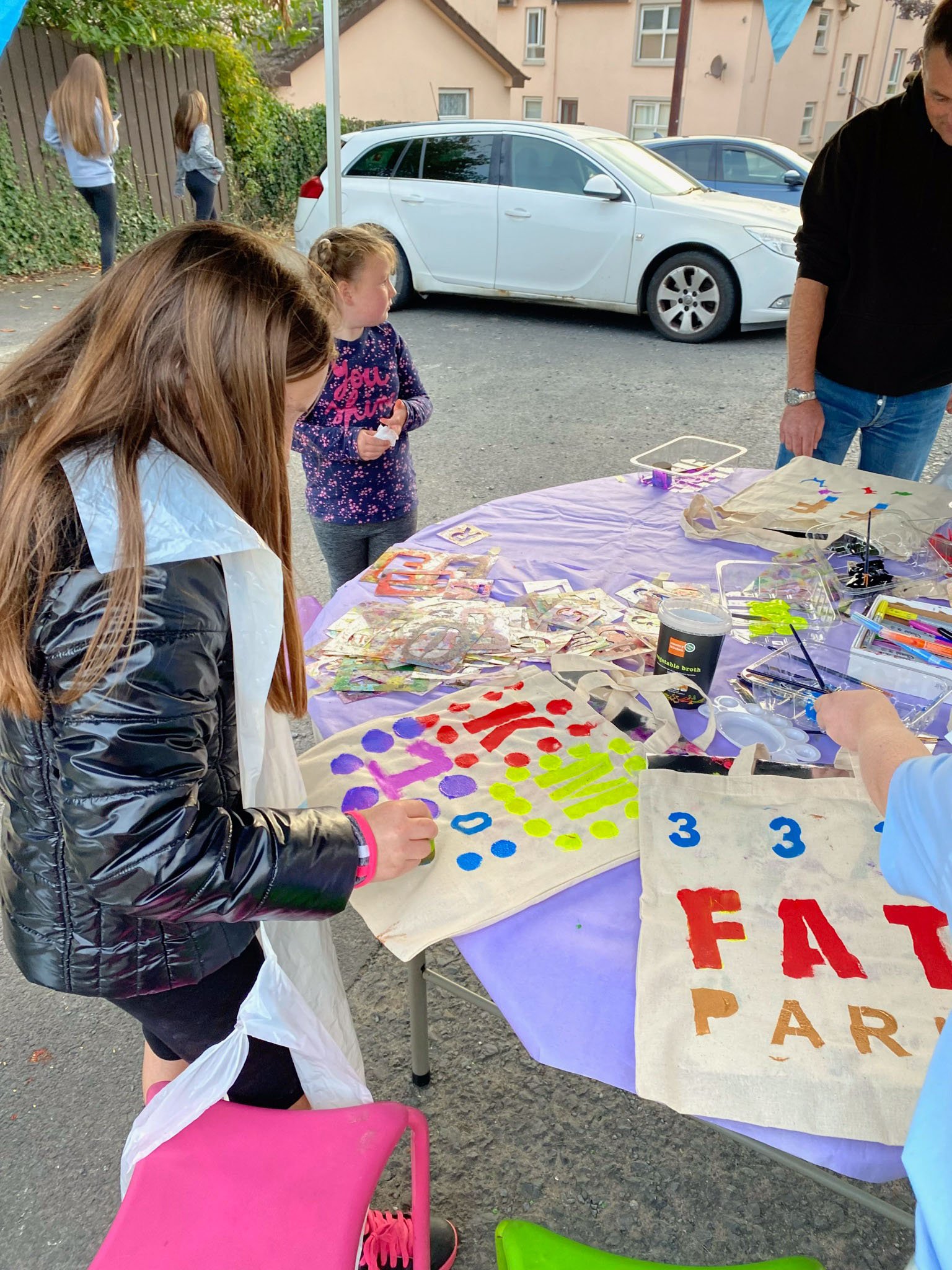
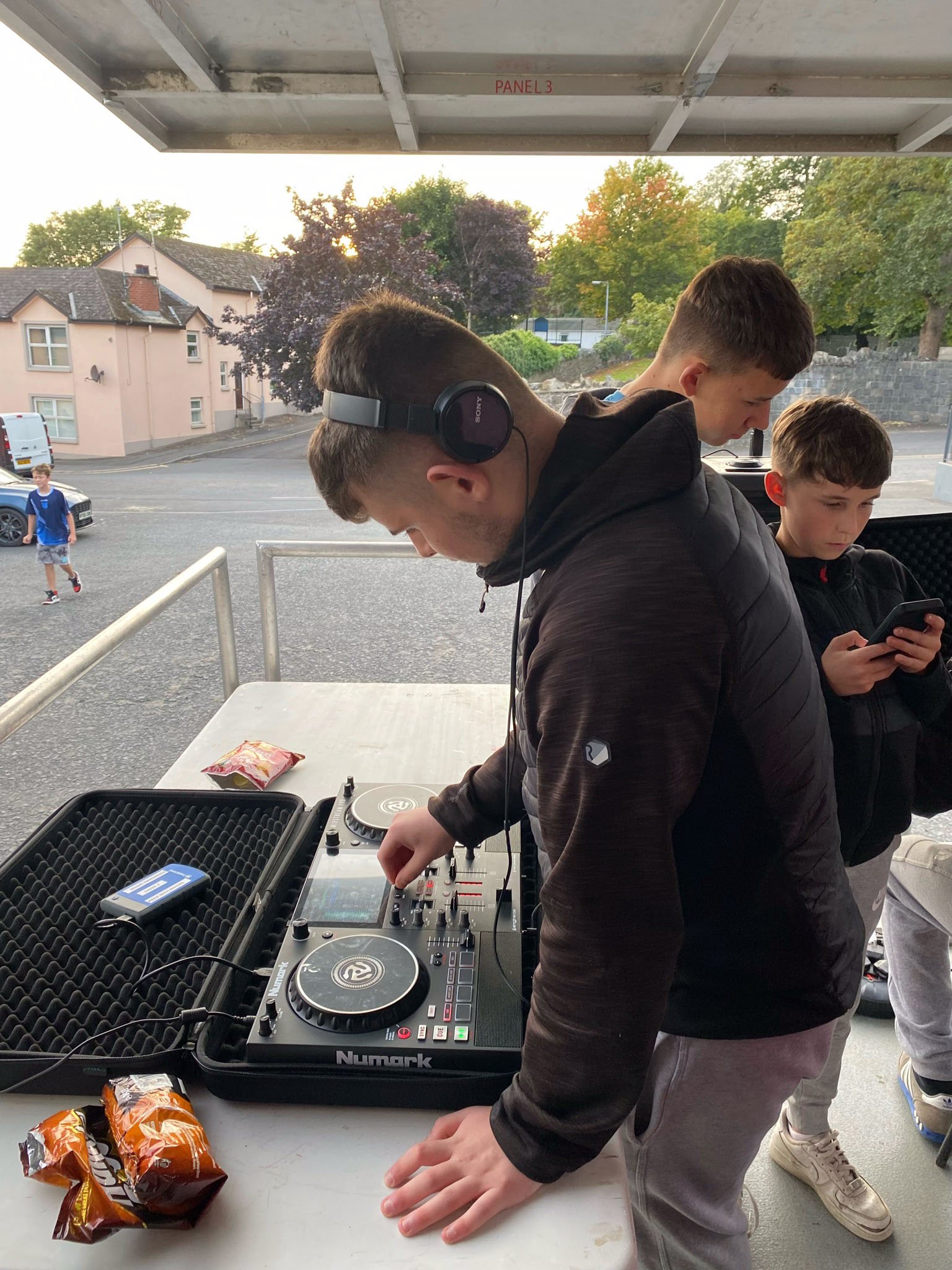
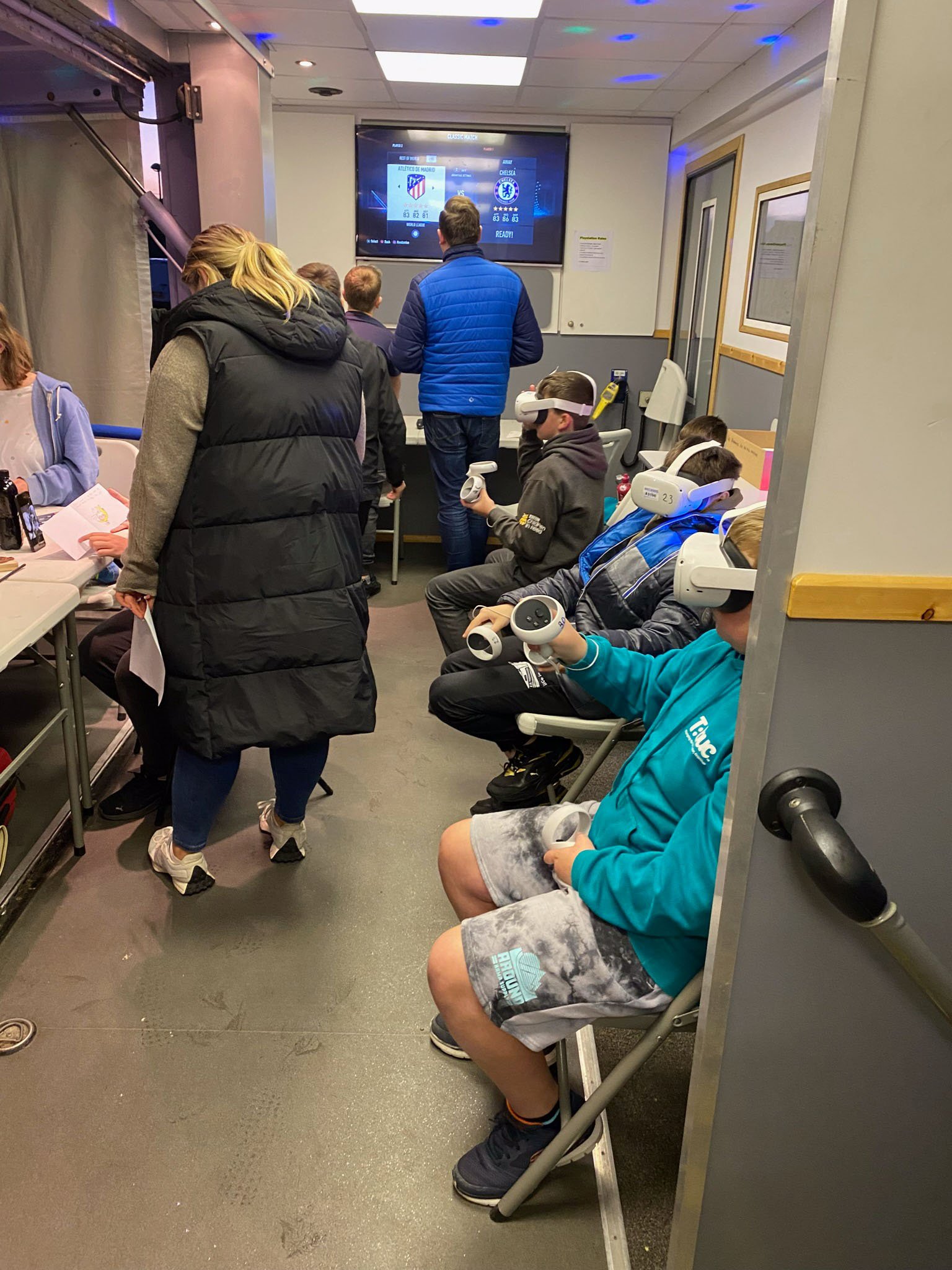



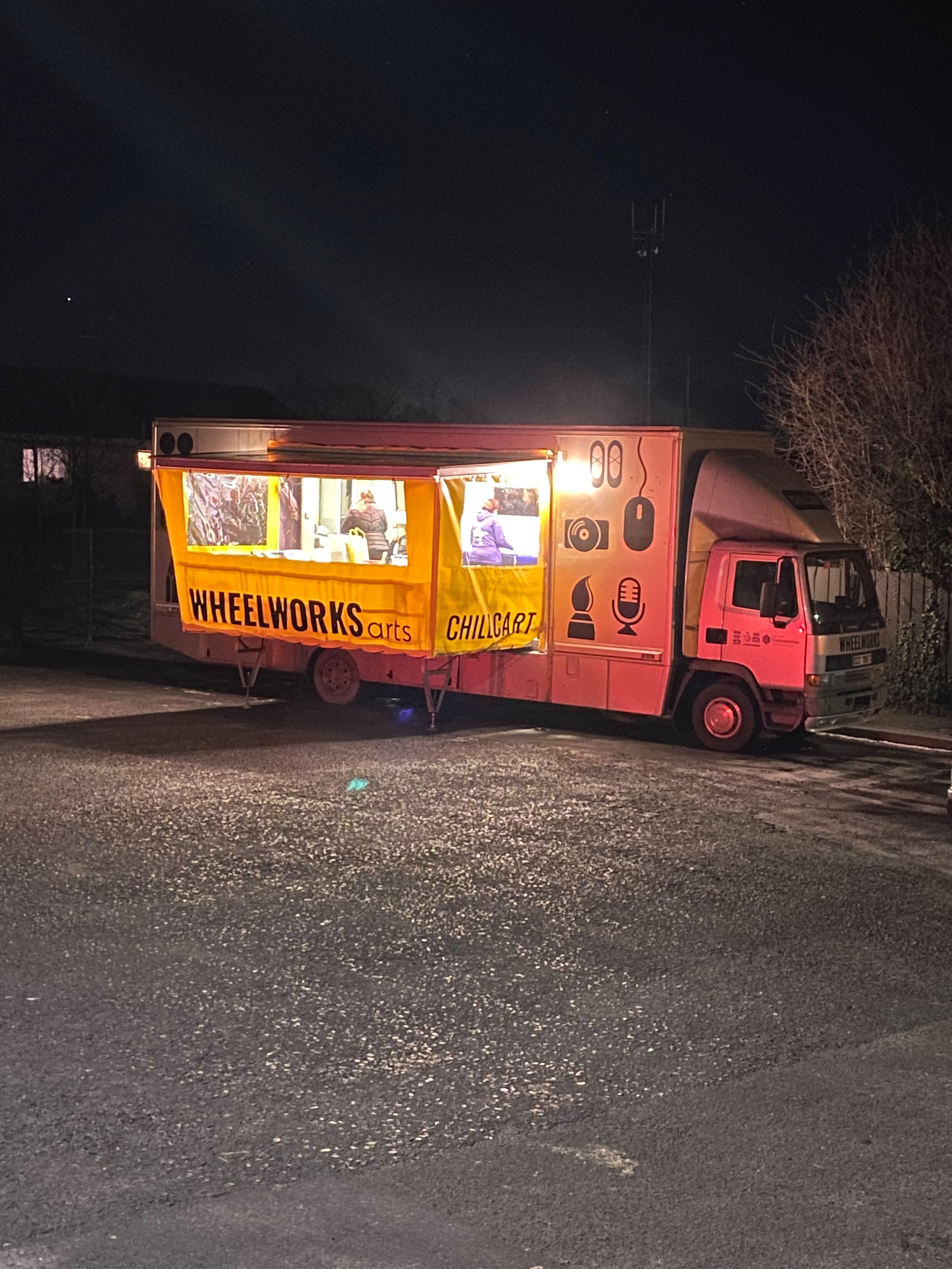
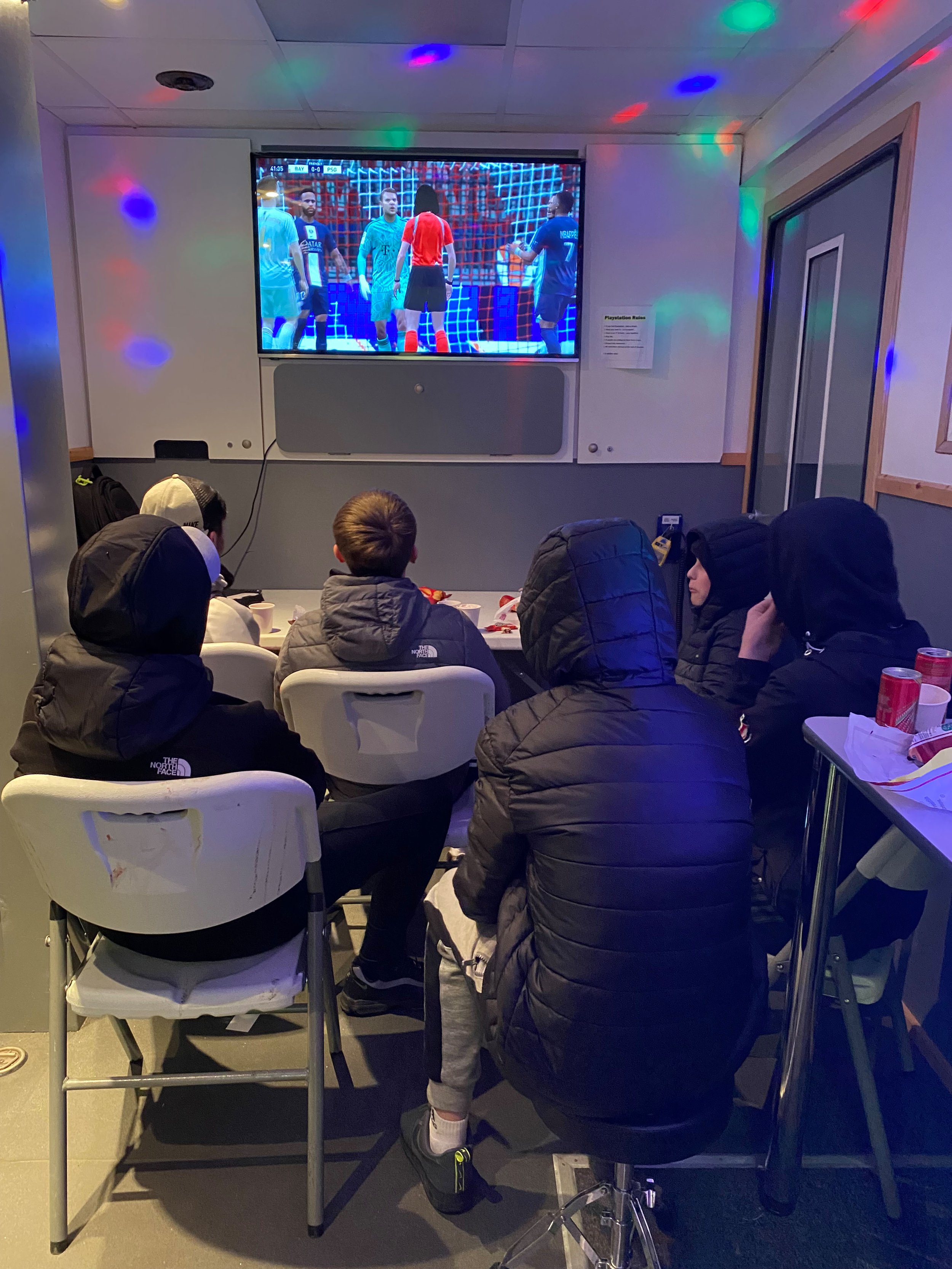
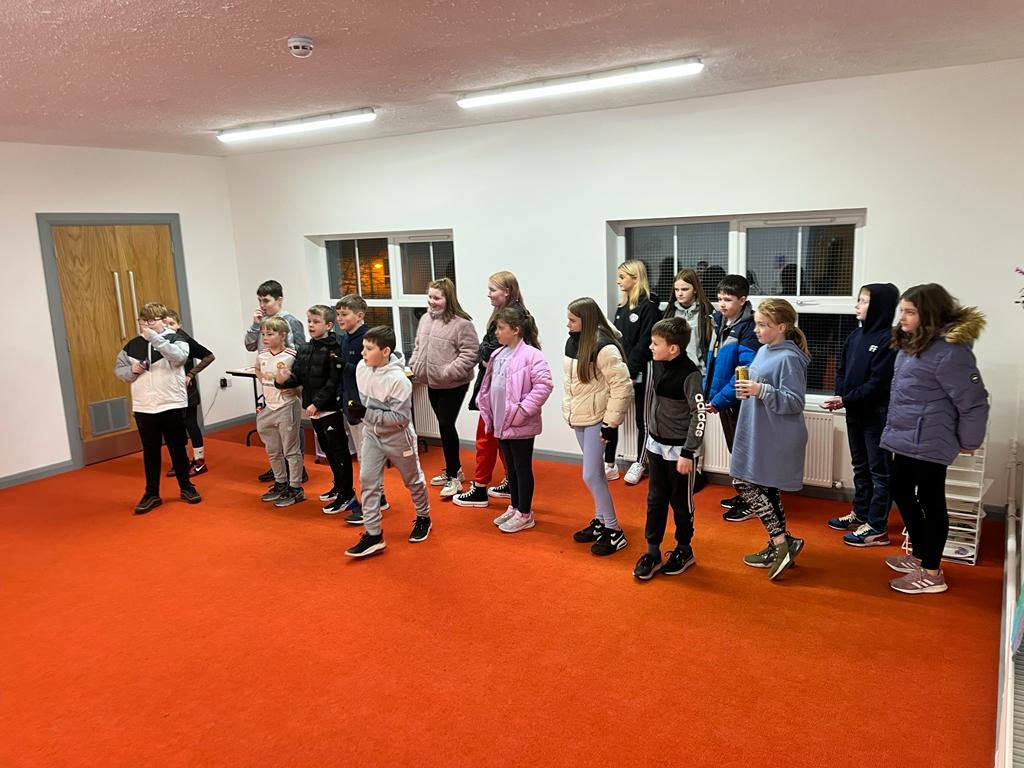
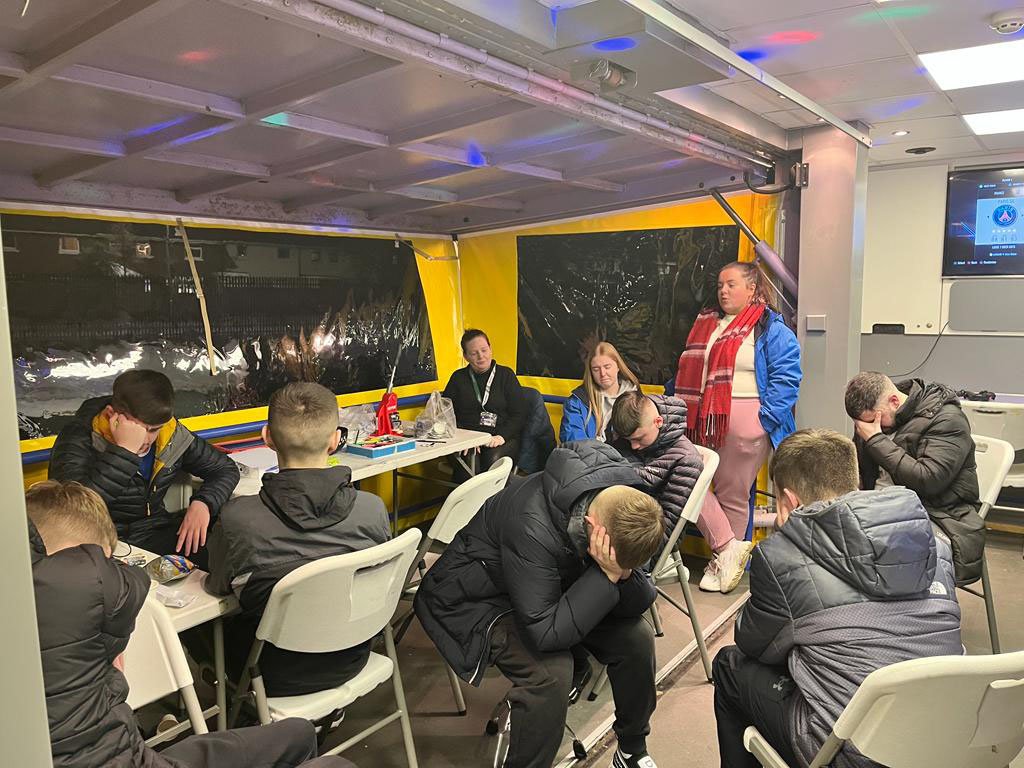
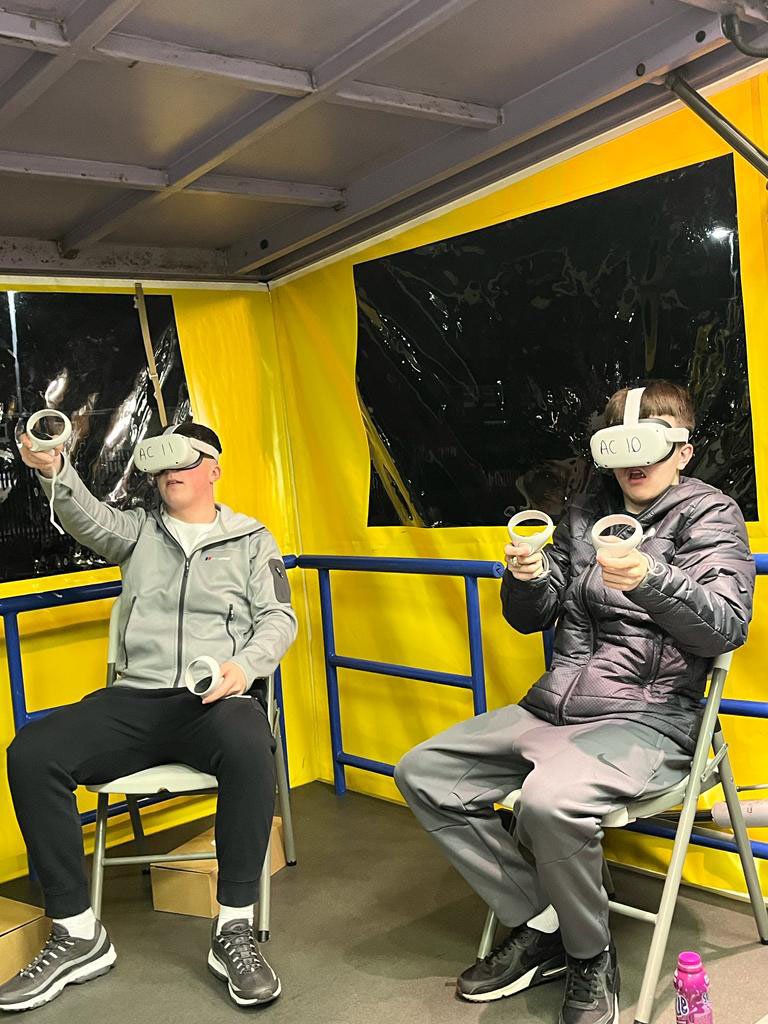
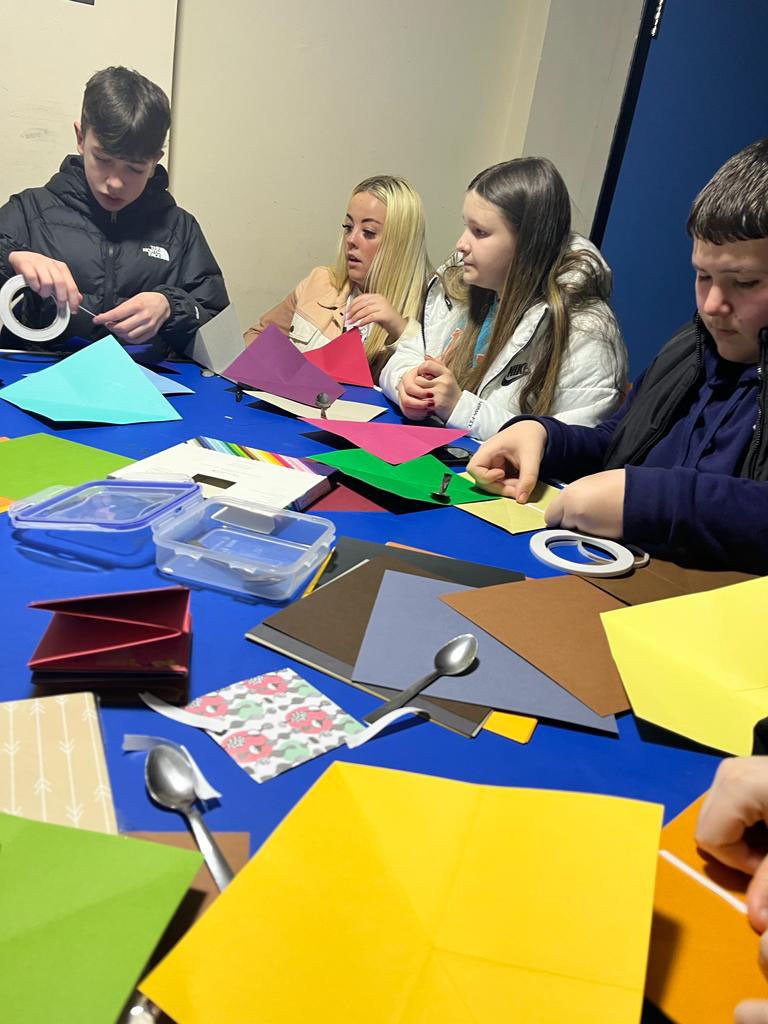
The Future Focus programme supports on-the-street youth work in a new direction through art & digital technology-led workshops, onboard our unique mobile social space, the ChillCart.
The Future Focus programme aims to create more accessible shared spaces and communities. It was designed to take outreach and detached youth work in a new direction by utilising our unique mobile vehicle the ChillCart.
By engaging with young people out on the streets and providing a safe space for creativity and conversation, the programme helped contribute to a decrease in anti-social behaviour, addressed multiple sectarian barriers and cultivated healthier relationships in a shared space environment.
In 2022/23 we ran two projects in the following locations; Belfast (Belfast council area) and in Portadown/Craigavon (Armagh, Banbridge and Craigavon council area). 190 young people - typically thought of as ‘disengaged’ - came together and participated in a range of games and creative activities including arts and craft, animation, Illustration, digital music, and virtual reality.
AT A GLANCE
2 PROJECTS
12 CROSS-COMMUNITY ACTIVITY DAYS
54 CREATIVE SESSIONS
28 CHILLCART POP-UPS
16 ARTISTS/FACILITATORS
500+ Hot Chocolates!
900+ YOUNG PEOPLE
Belfast
West & North Belfast are areas that homes segregated nationalist and unionist communities, with many families living in and close to interface areas. The homogenous composition of the interface areas means young people tend not to interact, which produces negative perceptions and mistrust of the “other” community, hampers the desire to cross interface boundaries and creates a climate of fear and avoidance. Similar risks face all young people living in interface zones, including recruitment of paramilitary activity, gang culture, antisocial behaviour, and violence - both sectarian and non-sectarian (Education Authority Area Plan 2018 – 2020).
Our initial street-based Outreach Work (September – November) built connections with over 173 young people between 9 and 16 years old. We were supported by youth, community workers and volunteers from GlenParent Youth Group, North Belfast Area Project, HAMMER Youth Club, Glencairn Youth, and Colin Gaels during the project.
During the next stage, 66 young people aged between 11-16 came together and worked in a more structured way on a cross-community basis. During these sessions, we used creative arts/technology-led activities as a tool to begin conversations and explore concerns.
The ChillCart provided a safe space and helped the young people openly discuss ingrained cultural biases while working together on the concept of a shared future and space.
There were fun trips and experiences such as Cinema trips, Bowling, Mini-Golf, WheelWorks Tech Studio trips, pizza parties and a shared Celebration Event — a mini-rave!
Overall this project fostered connections which enabled good relations and conversations with targeted young people throughout outreach, individual group work, creative activities, and cross-community events. Importantly, through this project, we could engage and work directly with nine young people involved in ASB offences in the community.
Both these areas have high level of disadvantaged and vulnerable young people partaking in at-risk activities, and with a history of territorial and sectarian divisions, which is still impacting the third generation of young people affected by the Troubles, as evident from the art-led sessions. Prior to the project, a meeting was held between WheelWorks, Council members, and local PCSP to highlight a worrying rise in anti-social behaviour (ASB), and how this project could help in targeting specific young people highlighted for recent ASB offences. Through this project we were able to engage and worked with 7 young people who were involved in ASB offences in the community.

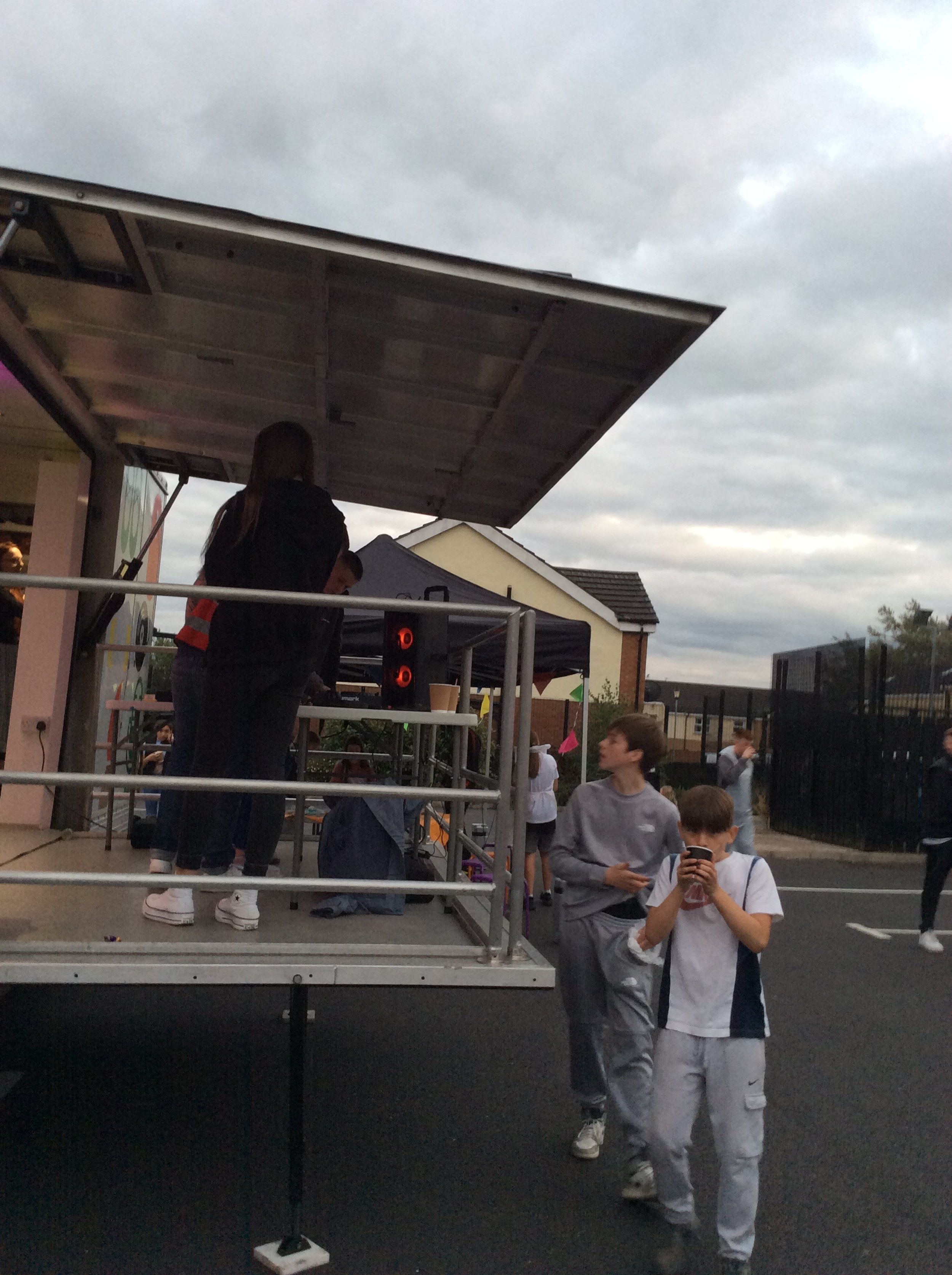


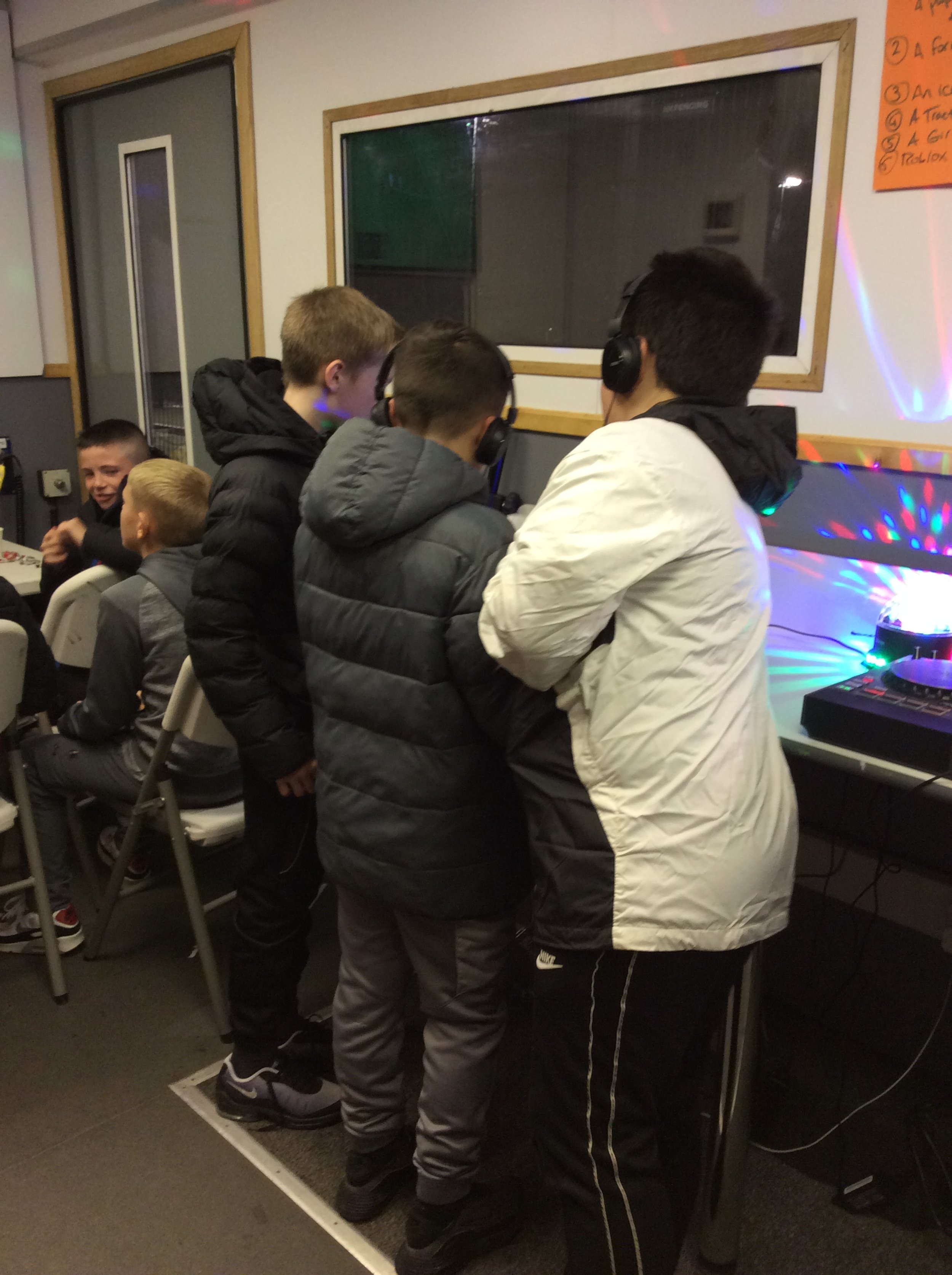

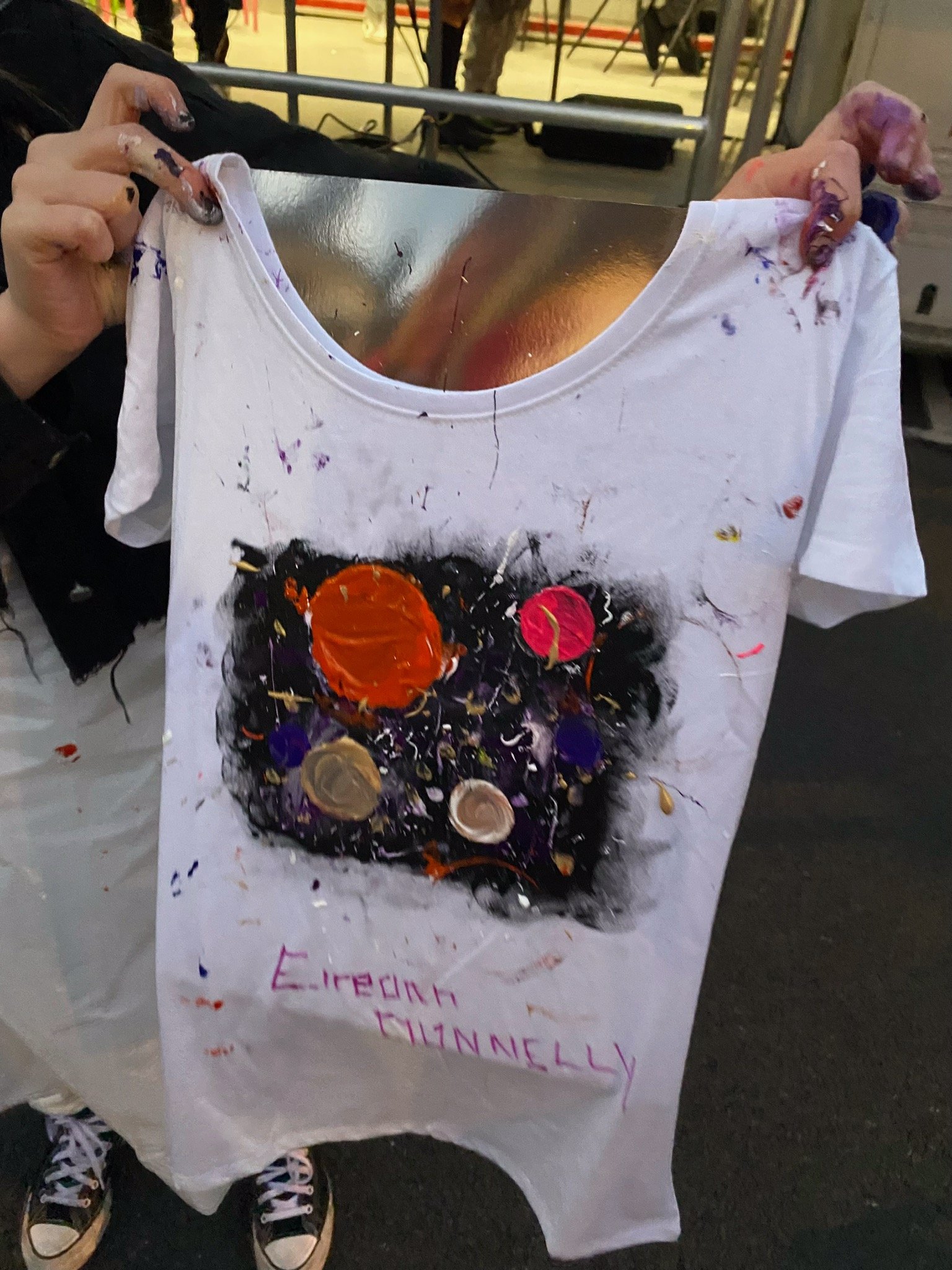
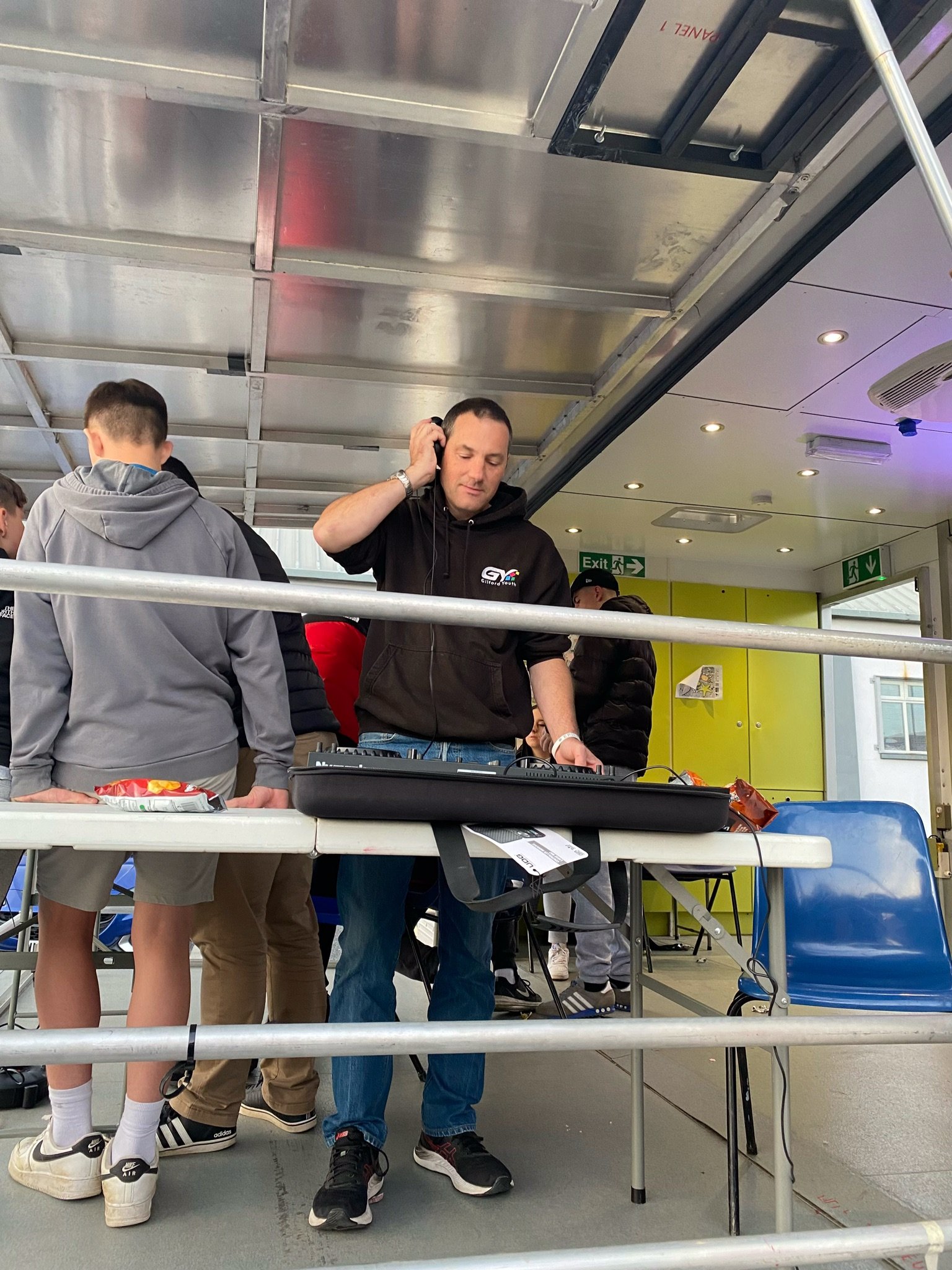

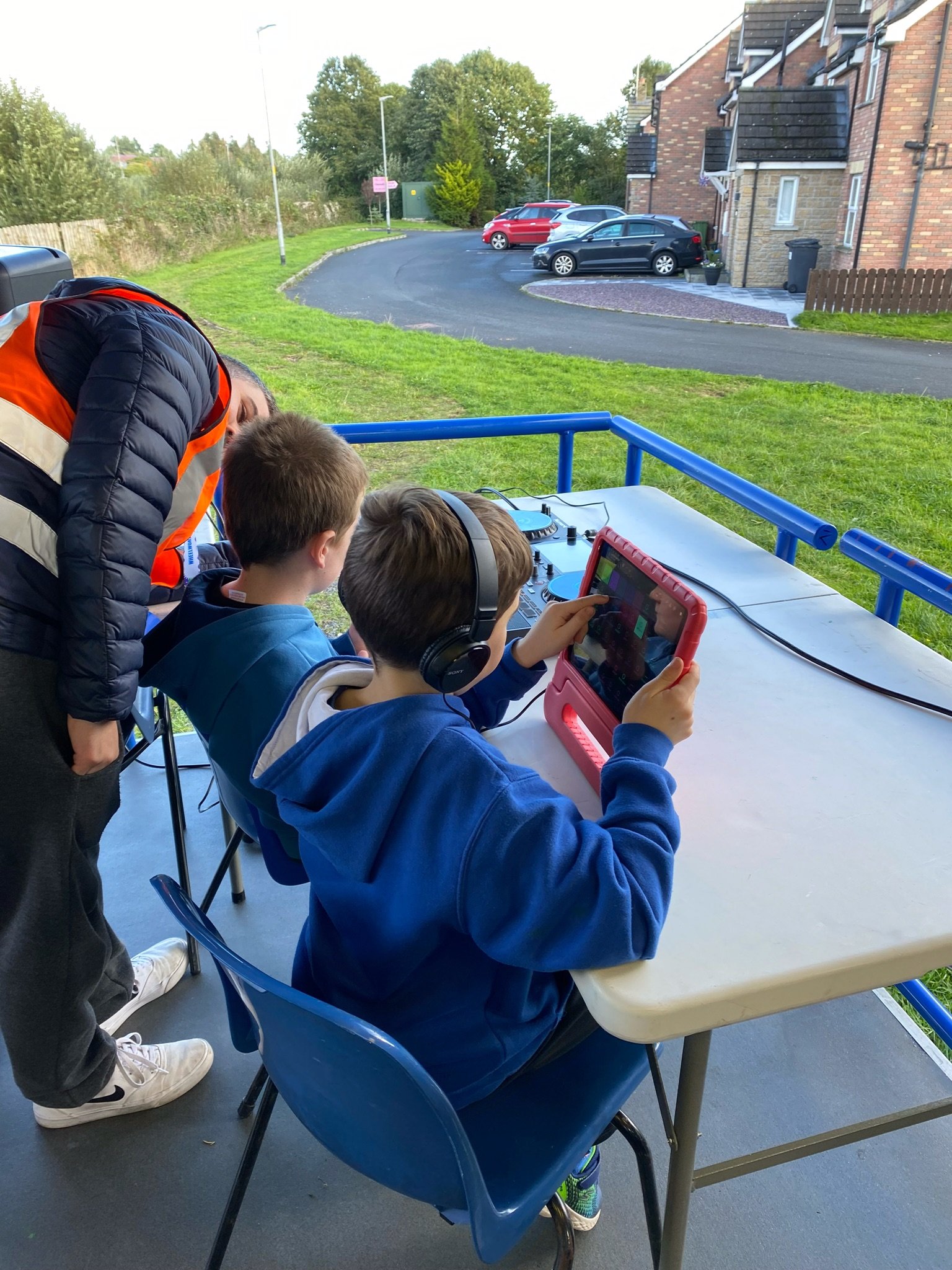
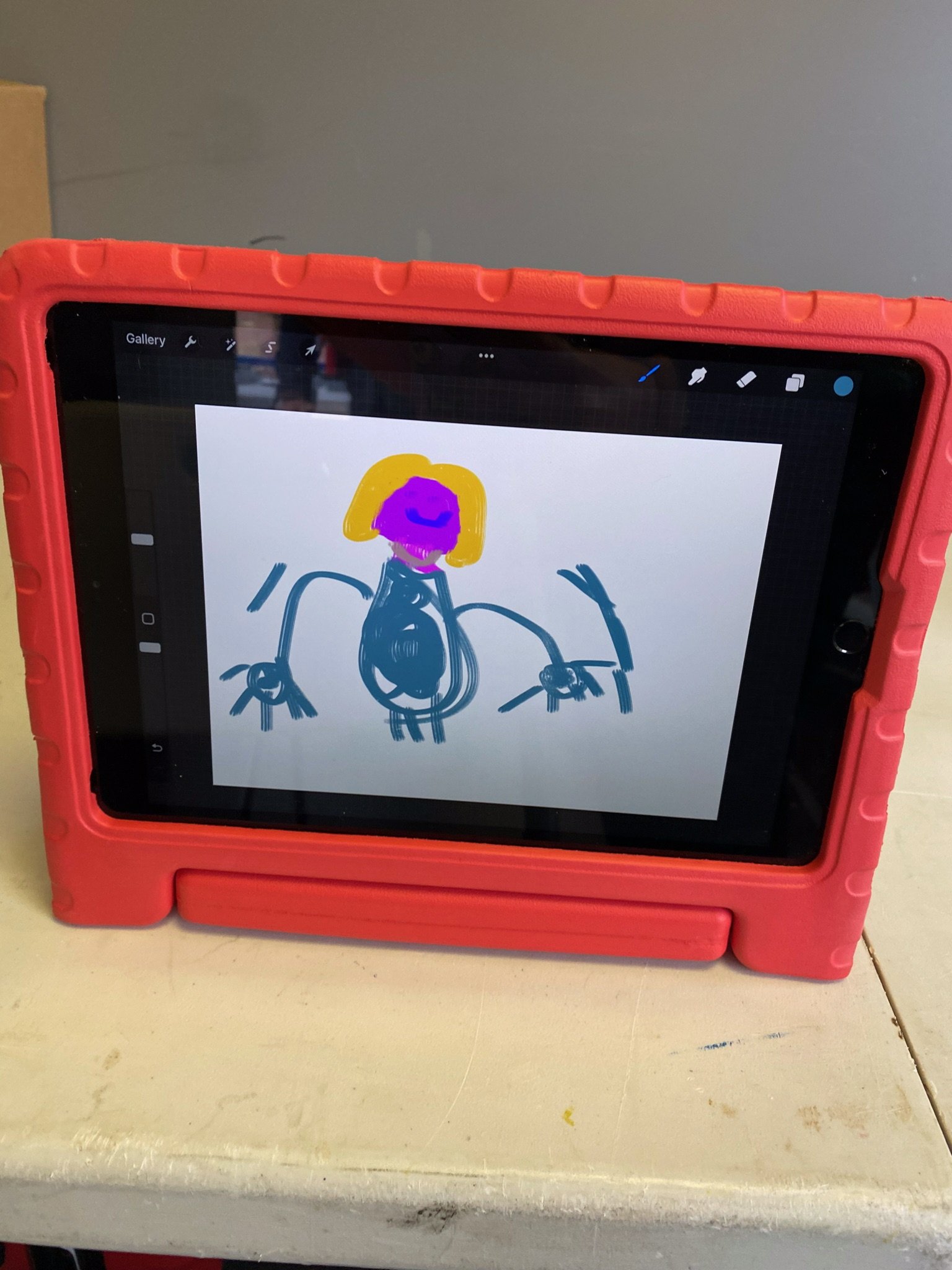
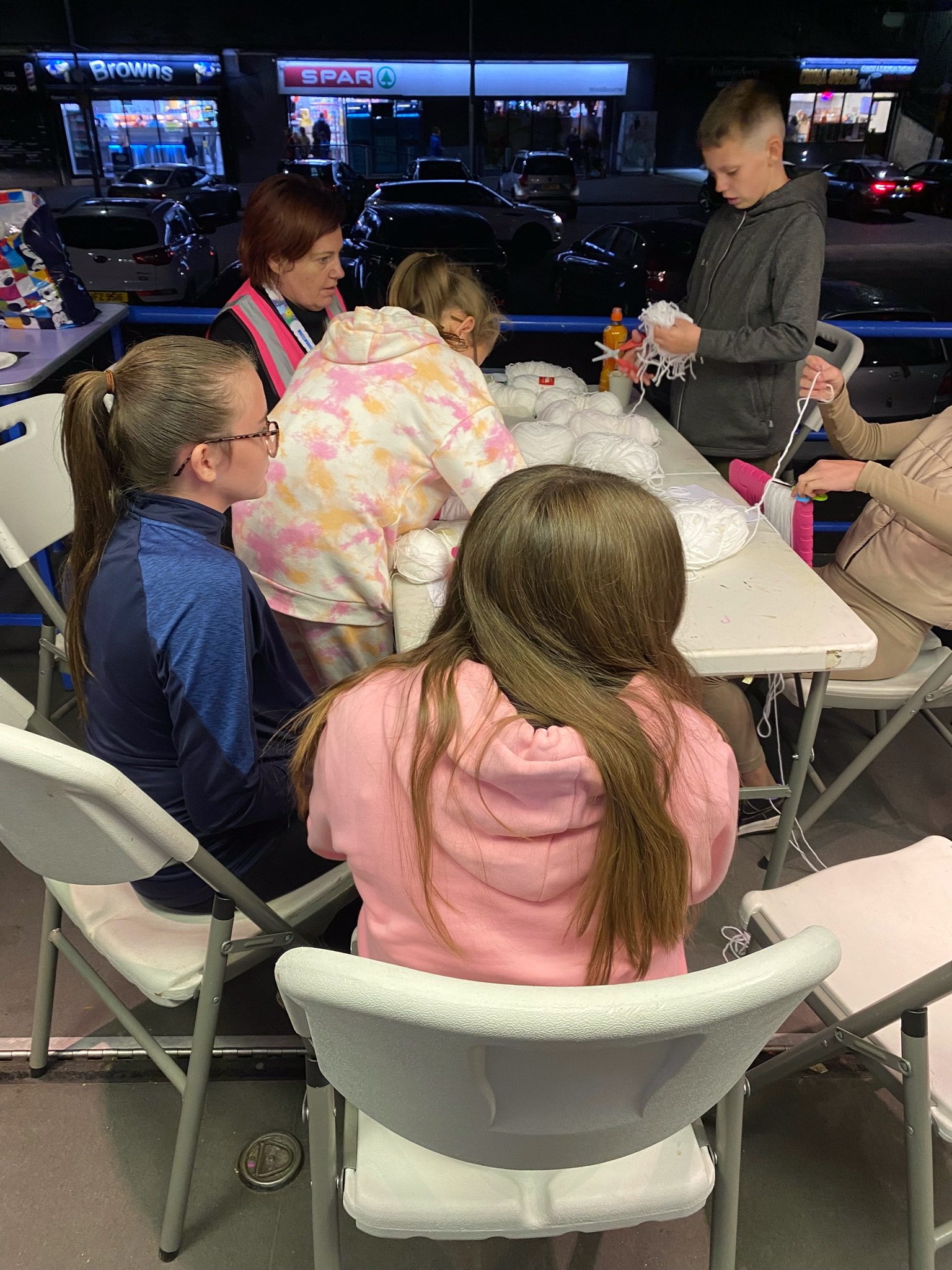
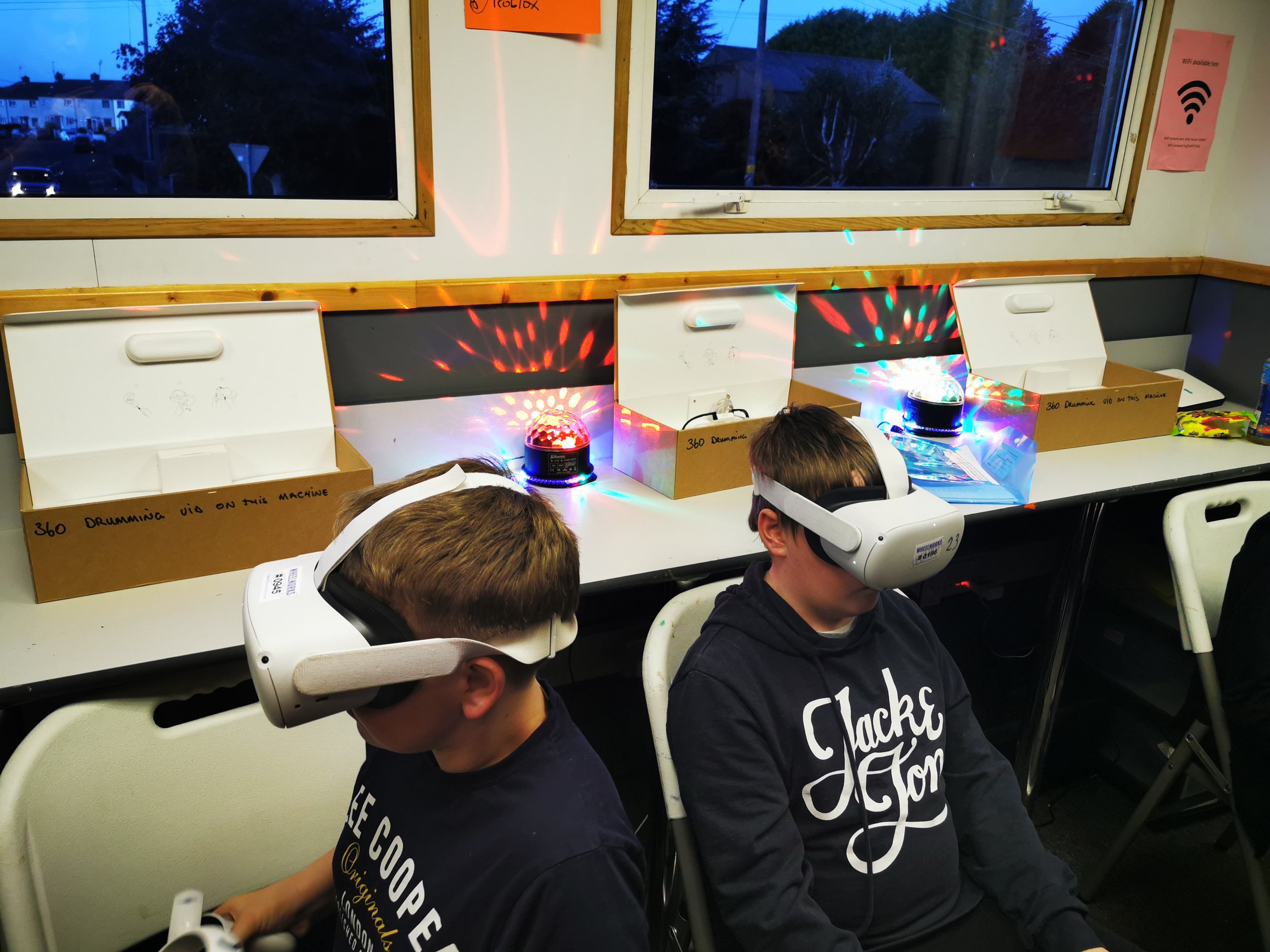

PORTADOWN / CRAIGAVON
This year, we partnered with Gilford Youth, Craigavon and Scotch Street Youth & Community Centre (SSYCC), Portadown. Both groups encountered multiple barriers to the many impacts of Covid-19 lockdowns and the mental health crisis that NI young people face. Public and social housing in Armagh, Banbridge and Craigavon is overwhelmingly segregated, leading to inter-community tensions affecting young people, social exclusion, and anti-social behaviour, with 88% of parents in Gilford reporting insufficient activities for young people. Studies show that young people in these areas are coming under the influence of paramilitaries as Police Recorded Security Situation Statistics (Feb 2019) highlight how dissident violence remains a concern.
The support of the ChillCart allowed the groups to meet and engage with hard-to-reach and at-risk young people ‘out and about’ in the community. It provided a safe and welcoming space for GR conversations, games, artistic activities and refreshments. The initial outreach engaged over 132 young people, with 62 carrying on to Stage 2 of Future Focus.
WHAT WE LEARNT
The ChillCart offered a mobile social space for alternative opportunities to territorial and sectarian anti-social behaviour, which young people embraced and proved to be a primary factor in engaging with the young people on their terms.
During the outreach sessions, the ChillCart successfully engaged with numerous groups of some of the most hard-to-reach young. The young people relaxed by participating in digital and visual arts workshops, playing together on the PlayStation, and engaging in informal light chats with the facilitators and community youth workers. Throughout the various outreach sessions, the youth presented complex issues and significant levels of ingrained sectarianism and paramilitary influence during conversations with the youth workers and WheeWorks Arts Youth Engagement Officers, and this was evident in the sectarian slur expressed in their artworks. A flexible and adaptive approach was required to maintain appropriate boundaries and ensure positive engagement in establishing relationships with the young people.
Feedback from one artist stated that the “The T-Shirt making was a big hit, but some of the young people were encouraging each other to create artworks with a sectarian/paramilitary slant – they avoided telling us what the abbreviations stood for, but it was obvious that it related to youth divisions of the paramilitaries”, this, in turn, provided the community youth workers and WheelWorks Youth Engagement Officer the opportunity to open up conversations and address engrained sectarianism.
The young people experimented with Augmented Reality apps which aided in good relations conversations concerning the use of flags with diverse groups of communities, challenging the young people to consider alternative flags for their community using the Quiver AR app on iPads. They also created games on an AR Games Design app, which was well received by both groups of young people, helping to facilitate a relaxed space for conversation between the young people. All commented that they had never worked with either app before.
The ChillCart was a space that young people felt comfortable in, and the digital technology experiences were a big success in helping to engage with the young people. Future Focus has successfully intervened and connected with the right young people for this project, providing a bridge for the youth groups to reach out to at-risk youth and begin building trusting and nurturing relations that will support them in participating in future cross-community activities.
FEEDBACK FOR THE PROJECT WAS OVERWHELMINGLY POSITIVE — LET’S LOOK AT WHAT THEY SAID:
Here’s what some of our young people thought:
CONCLUSION
The young people very positively embraced the ChillCart as a mobile social space. Here they could meet and participate in creative diversionary activities as an alternative to territorial and sectarian anti-social behaviour.
It was clear throughout this project how, when participants embraced the alternative creative opportunities, this encouraged greater personal understanding, reinforcing that everyone contributes to the changes and can enjoy each other’s company and make new friends bringing communities together in a shared environment.
The programme was supported by the Executive Office’s Central Good Relations Fund delivering under the ‘Together: Building a United Community’ Strategy, which is working to improve community relations across NI as we build on our commitment to move towards a more united and shared community.


